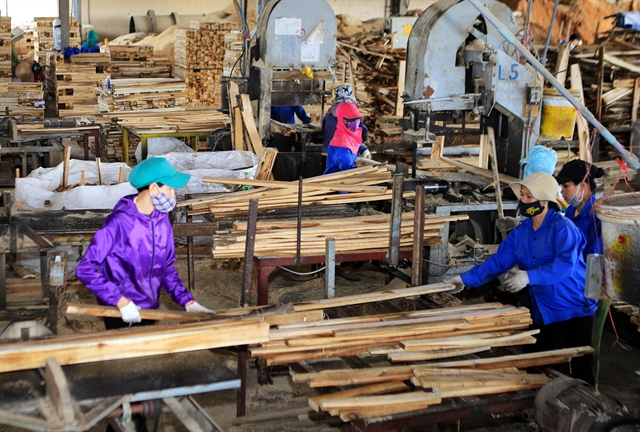Vietnamese businesses should adopt responsible timber trade practices to bridge the gap between Viet Nam's law and the its agreement with the EU on forest law enforcement, governance and trade

Vietnamese businesses should adopt responsible timber trade practices to bridge the gap between the decree on Viet Nam Timber Legality Assurance System and the EU-Vietnam Voluntary Partnership Agreement on Forest Law Enforcement, Governance, and Trade, according to delegates at an international workshop held online on December 11.
The decree on Viet Nam Timber Legality Assurance System (VNTLAS) regulates the harvest, transportation, trade, and processing of timber in accordance with requirements and regulations of international conventions that Viet Nam is party to and requirements of countries that import processed wooden products from Viet Nam.
The EU-Vietnam Voluntary Partnership Agreement on Forest Law Enforcement, Governance, and Trade (VPA/FLEGT) addresses illegal logging, improvement in forest governance and promotion of trade in legal timber products.
Nguyen Quoc Khanh, chairman of the Handicraft and Wood Industry Association of HCM City (HAWA), said: “On behalf of forestry and wood processing businesses, HAWA would like to suggest ‘Practising Responsible Timber Trade’ to satisfy both Viet Nam and the EU.
“This method has been strengthened in the last four years of implementing the HAWA DDS project, based on the actual situation and consultation with relevant stakeholders like Vietnam Administration of Forestry (VNFOREST), EU organizations and experts and Vietnamese businesses.”
Dao Tien Dung, the HAWA DDS project developer, said it is designed to support due diligence and traceability efforts by HAWA DDS members.
The platform includes timber origin identification system for domestic plantations, due diligence support system and timber traceability system, he said.
The project is funded by the FAO-EU FLEGT Programme and endorsed by the VNFOREST.
By the end of November, the project had completed the development and pilot phase of the platform, he said.
“The HAWA DDS Platform 1.0 provides standardised guidance and information technology solutions for enterprises in the forestry and wood processing industries to practise responsible timber trade.”
Differences
The VPA- FLEGT came into effect in June last year.
Since then the Government has been turning it into provisions in its VNTLAS Decree.
Since the decree was issued in September, it has been widely applied nation-wide.
But the EU has said the decree does not yet sufficiently reflect the VPA-FLEGT and adopted stricter measures on wooden products from Viet Nam.
Rui Ludovino, first counsellor on climate action, environment, employment & social policies, EU Delegation, said the differences between the two include the scope of application, timber sources, import controls, classification of enterprises, verification for export, FLEGT licensing, independent evaluation, and even JIC responsibilities.
“We have substantial work ahead of us, but I am confident that after these first problems Viet Nam will rapidly amend and supplement the VNTLAS Decree as needed to implement the Viet Nam Timber Legality Assurance System as provided for in the VPA.”
Tim Dawson, the leader of the FLEGT team at the European Forest Institute, said: “VPA requires due diligence for all imported timber unless with a FLEGT licence or CITES permit while the decree includes due diligence obligation when importing timber, but discrepancy in Form 03 on declaration of origin of imported timber may confuse the obligation.
“The decree only refers to import controls on importation while VPA commits to post clearance inspection as a part of the import controls.”
He suggested that technical discussions with the EU and national stakeholders and a high-level dialogue should be organised soon. — VNS





